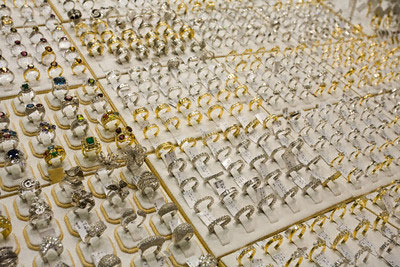Reuters
Jun 9, 2009
"Commodity" luxury hurting sector near-term
Reuters
Jun 9, 2009
By Alexandria Sage
NEW YORK (Reuters) - Wealthy shoppers will expect discounts on luxury goods for the next few years, and savvy upscale brands will counter the pervading frugality through innovation such as better customer service or design, a luxury expert said on Tuesday 9 June.
 |
"It will take a while for consumers to pay full price for product, or pay a higher price," said Milton Pedraza, founder and chief executive of the Luxury Institute, a research group geared to high net-worth consumers that provides luxury brands with proprietary research. "Two or three years," he said.
Beyond the global financial meltdown that has sapped the portfolios of many of the wealthy, the luxury sector itself is to blame for the sharp downturn in spending on pricey goods, due to the preponderance of brands selling a myriad of items that have diluted the cache of the notion of luxury, he said.
"There are too many brands participating in luxury handbags, there are too many brands participating in luxury ready-to-wear, luxury watches, luxury jewelry, and the service has been less than optimal, to put it nicely," Pedraza said at the Reuters Global Luxury Summit in New York.
With too many brands operating in categories outside their main strengths all competing for consumer dollars, shoppers have been trained to view luxury as a "commodity," he said. That is a shift in thinking with long-term consequences.
"We've now conditioned consumers to think of luxury as a commodity even more, to expect lower prices and to expect a discount, to be bribed into buying luxury, for the most part, and that's extremely negative for the long term," Pedraza said.
That means that smaller, under-capitalized luxury brands will go out of business or be sold, unable to withstand the prolonged slide in sales, Pedraza said, citing the recent acquisition of bag maker Lambertson Truex by Tiffany & Co (TIF.N).
On the other end of the spectrum, stronger brands with a greater tradition of craftsmanship and quality will rise above the fray as the wealthy seek out "specialist" brands known for excellence in one particular category, whether Chanel for women's suits or Hermes (HRMS.PA) for handbags, he said.
"It depends what categories you're really an expert in and what categories are just hobbies," he said, noting that sales of fine watches from Chanel or Louis Vuitton have suffered somewhat due to their "lack of credibility" in the market.
Smart brands will innovate to stay ahead in the challenging market through design -- updating classic brands with new twists -- as well as the ways they run their businesses, Pedraza said.
Luxury companies, historically slow to use data to help them track and retain customers, are now starting to appreciate its importance, with the downturn serving as a "catalyst," Pedraza said. Another avenue of innovation is improved customer service, he added.
"The mental models they have are really Victorian Age and Industrial Revolution business models, whether it's leadership and leadership development or whether it's the way they run their business more on efficiency rather than effectiveness," Pedraza said.
"I'm amazed by how many luxury brands, and I can't mention any, will call me and tell me, 'We don't know who our customer is today,'" he added.
Companies acutely aware of their customer base through their innovations in digital initiatives include audio and video equipment maker Bang & Olufsen (BOb.CO) and Swiss watch maker IWC Schaffhausen, which has a community of thousands of watch collectors who communicate through the brand's website, Pedraza said.
(Reporting by Alexandria Sage; Editing by Phil Berlowitz)
© Thomson Reuters 2024 All rights reserved.

























